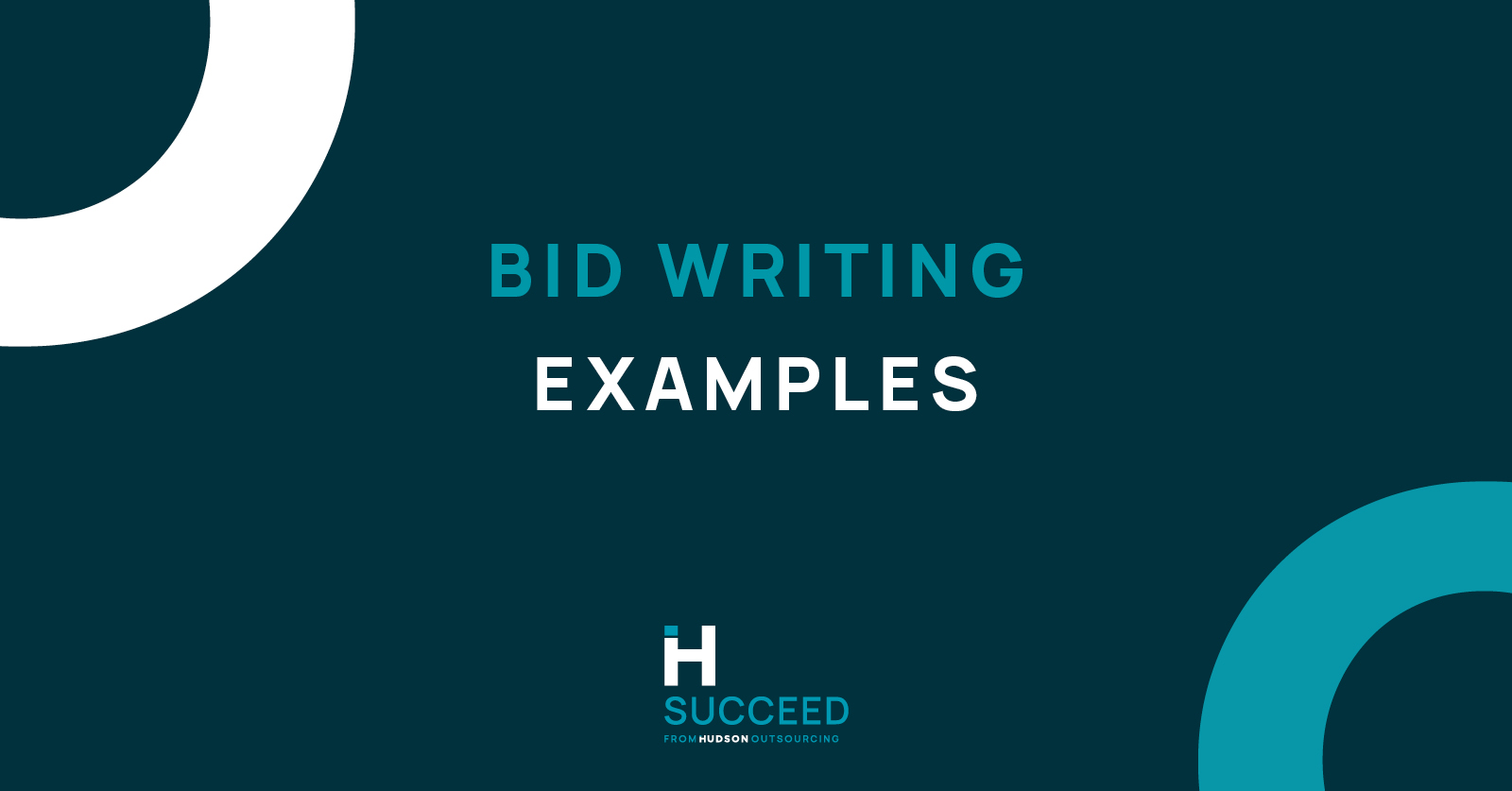Examples of Bid Writing
Last updated: Dec 17, 2021 @ 10:45 am
Want to know the formula for writing winning bids? Everyone does! The truth is, whilst there is not one single formula that you can just cut and paste across and guarantee yourself a win every time and no single golden example that will tick all the boxes.
It all depends on the nature of what you’re bidding for, the sector, the buyer’s priorities, the format of the proposal and the time the buyer gives you.
Giving out examples
A question we are frequently asked is whether we can provide examples of bid writing that has won work in the past. Whilst we’d love to, unfortunately, professional bid consultancies are not allowed to do so.
Indeed, we sign non-disclosure agreements to promise our clients that their tender responses and the details of the processes, policies and procedures contained therein, will remain confidential.
Freedom of information
Now you might think that submitting a freedom of information request to buyers (or at least, those in the public sector) to get a copy of the winning submission for a tender, might be the way around this complex confidentiality criterion. However, this is not necessarily the case.
Whilst you might see success in some cases, the majority of tenders include the option to sign a “Declaration of information deemed commercially sensitive.”
Most prospective suppliers will sign such a document (or something similar) to indicate that the information contained in their tender is not to be shared under the terms of the freedom of information act 2000 – so, unfortunately, that means none of us can get our hands on it! Although, this does make sense, and suppliers can be forgiven for doing so.
Just imagine if you’ve just won a contract, and a rival supplier looks up your winning submission to identify some of the things that tipped your submission over the edge, so they can replicate this and usurp your position on the contract when it comes up for tender again.
Content and Quality
But, the good news is, even if you were to come across an example of a winning submission, it might not do you much good anyway. Looking at a winning submission, even from a very similar contract, doesn’t necessarily mean you can easily replicate the winner’s formula.
A buyer, for example, might simply have liked the winner’s writing better or thought they had a better grasp of the specification, and when there are multiple, strong submissions, it may just come down to something like this.
Moreover, you might often find, as some of our clients do, that you actually beat the winning supplier on the quality aspect of the tender, but lost on price – in which case, there is very little that a copy of a winner’s quality submission can do to shine a light on where you might have gone wrong.
It’s very difficult to make an assessment of what a winning bidder did that you didn’t, or didn’t do that you did, and subsequently it is difficult to draw comparisons. However, feedback is important, so always ask for it if it isn’t already provided!
Examples of bid writing from different sectors:
It’s important to understand how different sectors typically require a different style of bid writing, even if this isn’t explicitly stated, and it is vital to get the style and tone right. Hence, it is almost impossible to draw comparisons or make assessments of quality across sectors.
Creative
A few important things to consider about bid writing examples from this sector are as follows:
- Tenders in the creative sector for things like videography, website design etc. will often require a proposal, which can be designed for maximum visual appeal as well as filled with excellent content.
- Prospective suppliers are often invited to put forward non-compliant bids, i.e. bids which suggest an alternative to the specification and to use their creative abilities to find even more innovative solutions to buyer requirements than those outlined in the tender documentation.
- Typically, rather than inputting data into a pre-formatted buyer document, it is up to suppliers themselves to decide how to mock up, put together and present their response and sometimes buyer don’t even outline what they expect to see.
- Often, even whilst presentation might not be part of the criteria, in this sector, a presentation may have a big influence whereas this might not be the case in the utilities sector, where technical information is more important. Hence, it’s difficult to make comparisons between bid writing examples.
Construction
The construction sector, for example, we might see as being at the opposite end of the pole and is a lot less flexible and has a lot more structure than a creative bid might.
- Buyers often ask for information from potential construction suppliers in a very standardised way. An example of this is a PAS 91 – an industry standard selection questionnaire to allow purchasing organisations to make an objective, technical assessment of potential suppliers based on data relating to their policies, accreditations, insurances and turnover.
- Hence, it is futile to look for an example of a successful supplier’s PAS 91 – often their reason for success will simply be that they have ticked all, or most of, the key boxes laid out in the document itself.
- It is easy to spot on a document like a PAS 91, where you might have been let down – in fact, most questions even tell you the pre-conditions you need to meet in order to pass i.e. having an up to date environmental policy, turning over a certain amount in a given year. In cases like this, it’s often futile to look for bid examples from successful suppliers – instead it is better to look at the feedback and see what it was that let you down.
In Conclusion
To summarise, due to the complex confidentiality laws in the procurement sector, it is extremely difficult to get hold of bid writing examples or examples of successful tenders. Moreover, due to the intricacies and complexities of tendering for contracts and procurement, even if you do get your hands on a copy, probably in vain. Due to the numerous complex factors involved in the assessment of a bid, it is often impossible to draw comparisons between bids, let alone between bids across sectors. The best thing you can do is ask for feedback about what went wrong with your bid specifically and then act on it.
If you need help writing bids or are frustrated at not seeing success, talk to our Hudson Succeed team today! No matter you’re your problem or frustration with tendering, we will have a service for you! Speak to one of our tender experts today to find out more information about how we can work in a way completely bespoke to you.
Find more helpful tips and advice in our blogs. We cover topics including:





